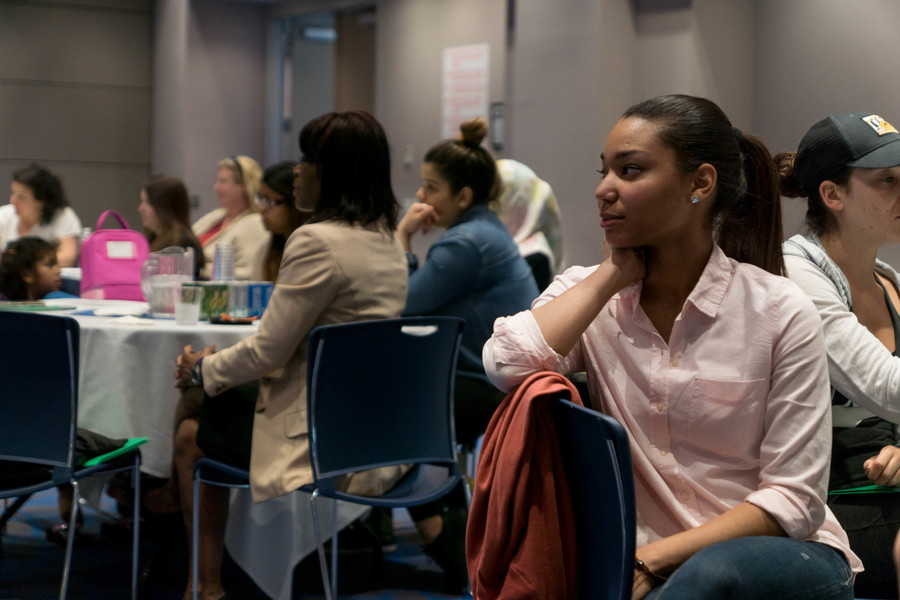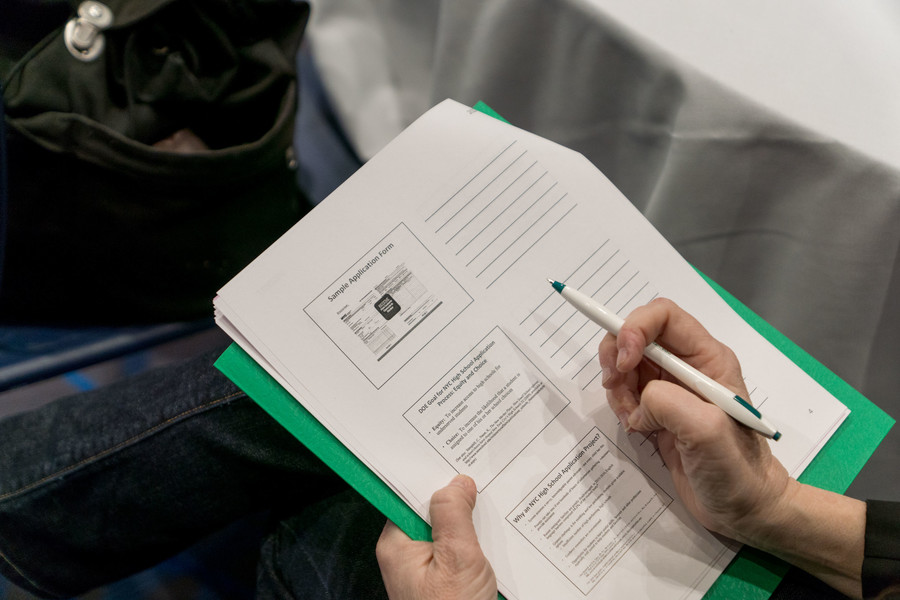Cracking secrets of high school
Zoned schools. Screened schools. Specialized high schools.
Navigating the complex maze of the high school admission process can leave many students and families feeling overwhelmed and confused. The admissions process is run by a “confusing set of policies” in many of the 400 public high schools run by the city, according to a 2016 report by educational news outlet Chalkbeat.
It’s even harder to navigate without well-informed guidance counselors, and for families where English isn’t their first language.
Even worse, middle school counselors are super-busy, primarily because they don’t have the support, time and knowledge they need to fully help students.
Manhattan College’s Center for the Study of the Future of Education hosted a training session earlier this month for its education students and undergraduate volunteers as they try to turn that around and get middle schoolers into the high schools they want.
Idamaris Perez is a graduate student at Manhattan and interns at Milton Fein P.S. 7 where she has assisted the school’s counselor for the past four years with students from kindergarten through fifth grade.
In the fall, she will intern at the Life Sciences Secondary School in Manhattan, which serves middle and high school students. Attending the day’s presentation, she said, allows her to step out of her comfort zone and learn something new, especially since she typically works with younger students.
Mary Tindle and Kevin Matthews are two Manhattan students who are part of something called Motivational Outreach. Undergrads populate the group, bringing lower income students onto the Manhattan campus for the day while giving tours and motivational seminars. They also plant seeds to show them how college actually could be part of their future.
We “help them realize that they can go to college after high school, even if they don’t have the grades or the money,” Tindle said.
Matthews said he and Tindle want to offer a support system to students while getting more insight as to what students experience during the application process.
Counselors help students understand the city’s public high school directory, which runs more than 600 pages and provides information on the Specialized High School Admission Test.
They also discuss exam prep, and helps them find a high school that matches their interests.
Additionally, counselors work with eighth-graders if they are not matched with schools during the first-round process. Lower income students need additional support because the process is new to students and families, especially when schools are the main source of receiving information.
Megan McShane, a graduate student at Manhattan’s education school and an intern at I.S. 254, attended the workshop to learn how to better work with students.
McShane and the eighth-grade counselor at her school worked with more than 100 students, which she said would have been an unmanageable hardship for her school’s counselor to navigate with students and families alone.
I.S. 254 might be one of the more fortunate schools getting that additional help. According to the American School Counselor Association, school counseling is not mandated in New York between kindergarten and 12th grade.
While the association recommends no more than 250 students for each counselor, the national average in the 2013-14 school year — the most recent year data was available — is almost double that.
The education department launched the Single Shepherd program last year with the goal of pairing students between sixth and 12th grade in two different school districts in the South Bronx and Brooklyn with a school counselor or social worker. That would allow there to be a counselor for every 100 students.
The two districts were chosen because education disparities emerged in the earlier grades.
“It’s an opportunity to provide some training for people who either want to go out and work in this field, or want to work with kids in the schools,” said Corine Fitzpatrick, co-director of Manhattan’s Center for the Study of the Future of Education. “I want them to understand that this work is some of the most important work they could possibly do. Helping families get through an extremely complicated process of getting their children into these high schools.”









